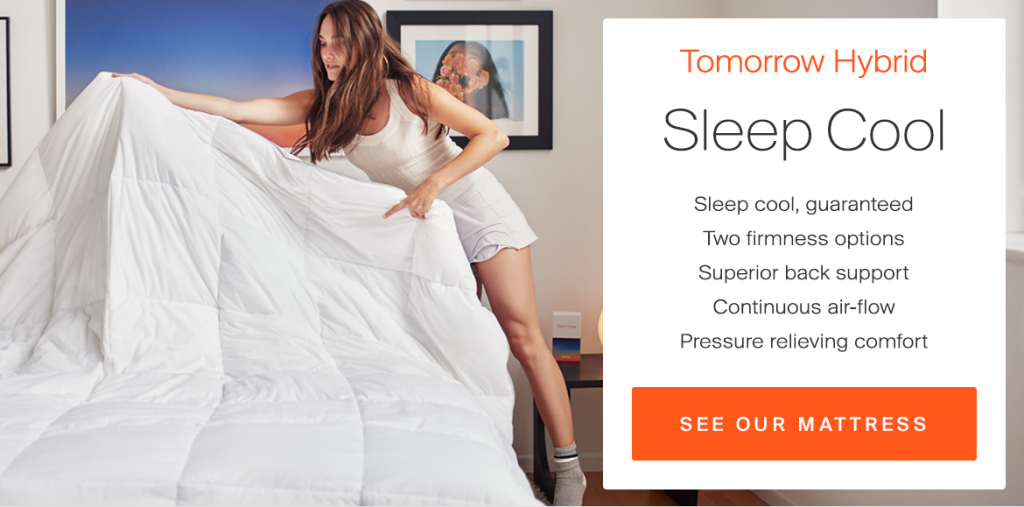Night sweats are the pits. If you’ve ever abruptly woken up drenched in sweat, then you may be part of the 3 percent of people suffering from sleep hyperhidrosis, or night sweats. But there’s good news: you may not be doomed to suffer frequent sleep disruptions and daily sheet-changing forever. We rounded up essential information about night sweats so you can get the zzz’s you need.
What Causes Night Sweats?

Even if you only experienced it once, you know that there’s nothing ordinary about night sweats. In some cases, night sweats can simply be a case of sleeping on the wrong mattress — like one that traps in body heat — but in other cases, the sweating can be caused by conditions like:
- Menopause: Two words — hot flashes!
- Hormonal Shifts: hormonal shifts associated with puberty, pregnancy, and thyroid problems can leave you sleeping hotter than normal.
- Idiopathic Hyperhidrosis: It sounds scary, but chronic sweating has no medical cause.
- Infections: Bacterial infections, HIV, osteomyelitis and tuberculosis can all cause night sweats.
- Cancer: Some forms of the “Big C” include night sweats as one of the early symptoms.
- Obstructive Sleep Apnea: Snoring and restricted breathing aren’t the only problems associated with sleep apnea — you’re also three times more likely to experience night sweats.
- Medications: Hormone blockers and antidepressants often list night sweats as a side effect.
Coping with Night Sweats

If you know what’s causing your night sweats, try following these tips to minimize your discomfort.
Switch to Cooler Bedding

Lighten up on the blankets and consider switching to a temperature regulating mattress with a breathable construction. Shameless plug: our mattress uses NASA-designed Phase Changing Material that literally pulls heat away from your body so you sleep cool.
Avoid Triggers

Obviously bundling up and raising the thermostat can lead to a hot night’s sleep. But did you know that some relatively common habits can lead to night sweats? Stop or cut back on habits like drinking alcohol or caffeine smoking, especially at night.
Chill Out

Battle your night sweats by creating a cool sleeping environment. Start by turning the thermostat down. The National Sleep Foundation recommends setting the temperature to somewhere between 60 and 67 degrees Fahrenheit for a sound, comfy sleep.
Create Calm

The same stress and anxiety that keeps you sweating things out during the day can contribute to sweating in your sleep. Try creating a calming sleep ritual like reading, listening to music, or meditating to reduce sweat-inducing stress before bedtime. Listening to a relaxing podcast, like Sleep with Me and Meditation Minis, is a great way to distract yourself if your mind is running.
Should You See a Doctor?

If you’ve tried everything and still wake up in a pool of sweat, you might want to schedule an appointment with your doctor. While night sweats are annoying sleep disruptions, they can also be a symptom of infection or disease, including thyroid problems, hormone imbalances, cancer or perimenopause.
Whether the root of the problem causing your sweats is a stifling mattress or a medical condition, you don’t have to suffer night after night. And though there’s no one-size-fits-all remedy for coping with night sweats, getting a cool foundation certainly helps. Start reclaiming your right to cool, comfortable, sweat free sleep.

